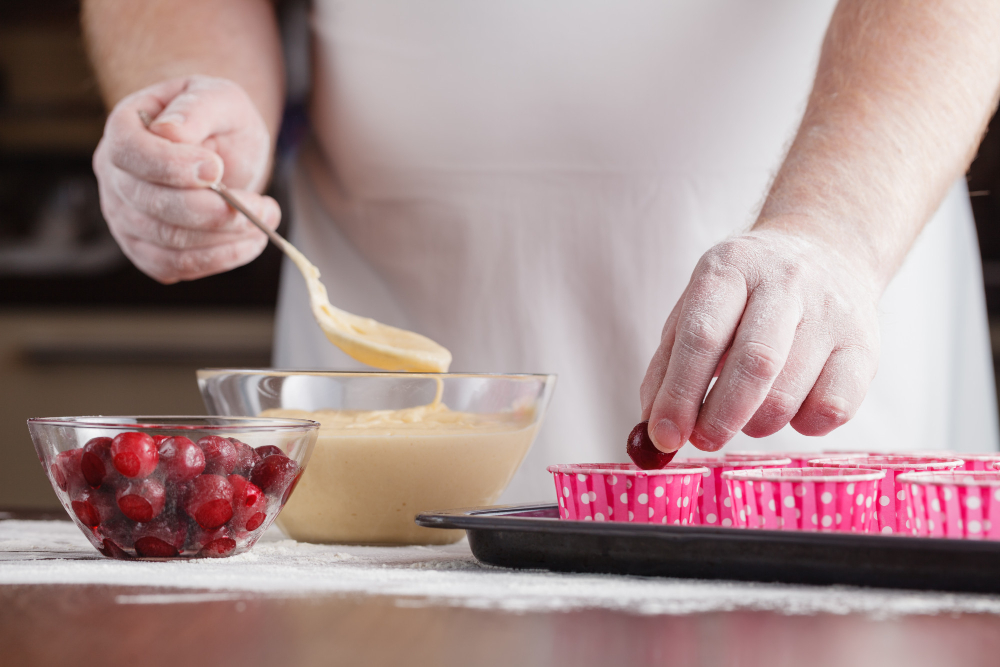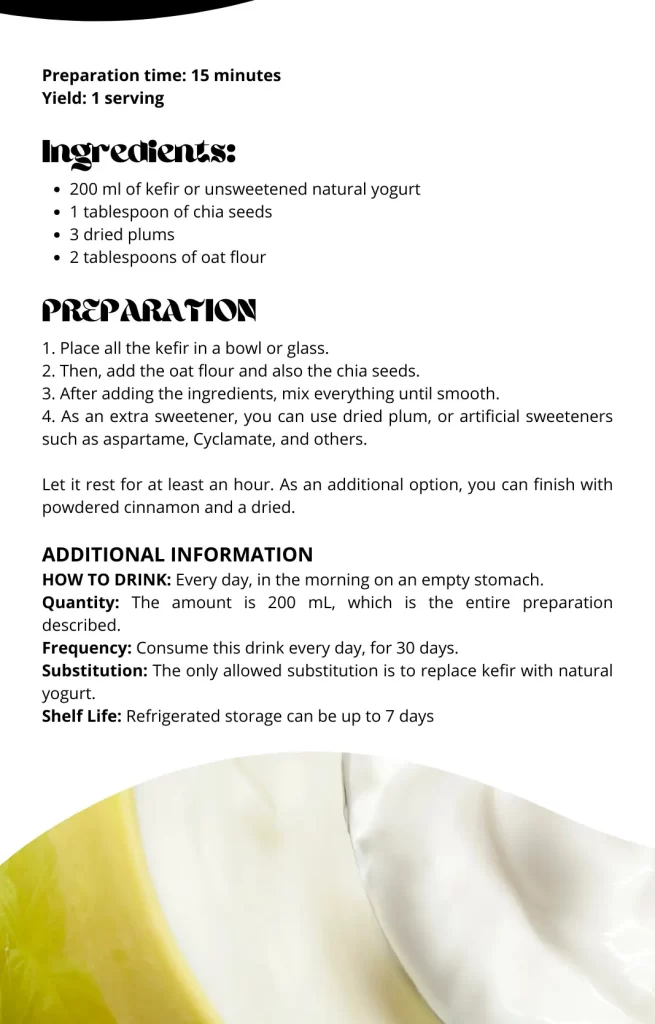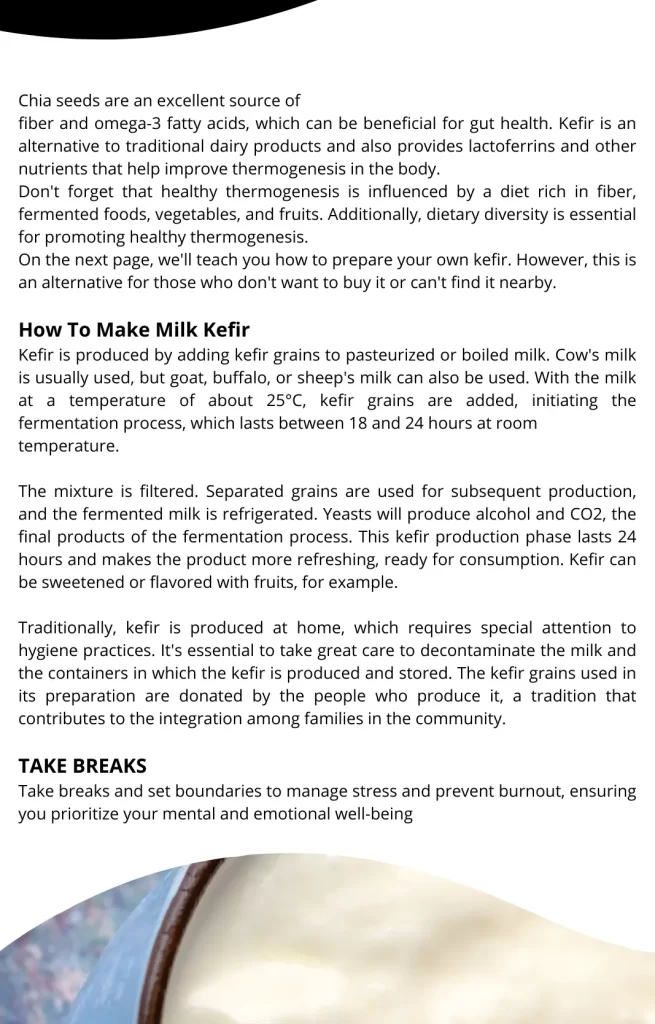


Preparation time: 15 minutes
Yield: 1 serving
* 200 ml of kefir or unsweetened natural yogurt
* 1 tablespoon of chia seeds
* 3 dried plums
* 2 tablespoons of oat flour
1. Place all the kefir in a bowl or glass.
2. Then, add the oat flour and also the chia seeds.
3. After adding the ingredients, mix everything until smooth.
4. As an extra sweetener, you can use dried plum, or artificial sweeteners such as aspartame, Cyclamate, and others.
Let it rest for at least an hour. As an additional option, you can finish with powdered cinnamon and a dried.
HOW TO DRINK: Every day, in the morning on an empty stomach.
Quantity: The amount is 200 mL, which is the entire preparation described.
Frequency: Consume this drink every day, for 30 days.
Substitution: The only allowed substitution is to replace kefir with natural yogurt.
Shelf Life: Refrigerated storage can be up to 7 days
Chia seeds are an excellent source of
fiber and omega-3 fatty acids, which can be beneficial for gut health. Kefir is an alternative to traditional dairy products and also provides lactoferrins and other nutrients that help improve thermogenesis in the body.
Don’t forget that healthy thermogenesis is influenced by a diet rich in fiber, fermented foods, vegetables, and fruits. Additionally, dietary diversity is essential for promoting healthy thermogenesis.
On the next page, we’ll teach you how to prepare your own kefir. However, this is an alternative for those who don’t want to buy it or can’t find it nearby.
Kefir is produced by adding kefir grains to pasteurized or boiled milk. Cow’s milk is usually used, but goat, buffalo, or sheep’s milk can also be used. With the milk at a temperature of about 25°C, kefir grains are added, initiating the fermentation process, which lasts between 18 and 24 hours at room
temperature.
The mixture is filtered. Separated grains are used for subsequent production, and the fermented milk is refrigerated. Yeasts will produce alcohol and CO2, the final products of the fermentation process. This kefir production phase lasts 24 hours and makes the product more refreshing, ready for consumption. Kefir can be sweetened or flavored with fruits, for example.
Traditionally, kefir is produced at home, which requires special attention to hygiene practices. It’s essential to take great care to decontaminate the milk and the containers in which the kefir is produced and stored. The kefir grains used in its preparation are donated by the people who produce it, a tradition that contributes to the integration among families in the community.
Take breaks and set boundaries to manage stress and prevent burnout, ensuring you prioritize your mental and emotional well-being